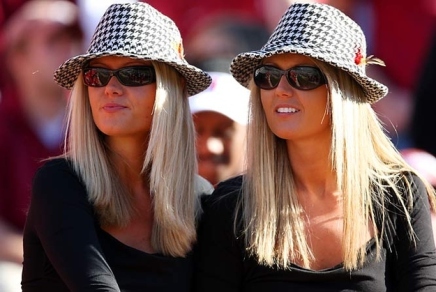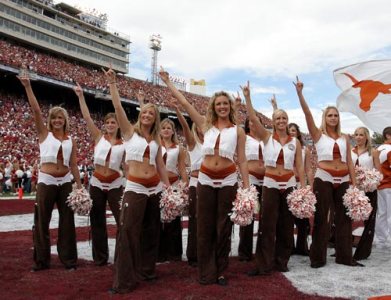By: Todd M. Schoenberger, @TMSchoenberger, @JonesFallsPub
Historians will look back at 2016 as the year of the people. Political junkies will prefer to describe how absolute power had shifted from the Democrats to the Republicans this year, but our changing ways are much more emblematic than something this simple.
People have decided to take the necessary steps to regain control. Control of their lives, control of their futures. Those with power took one too many bites from the proverbial apple and pushed the public a few too many times.
And you would be naïve to think the ‘power to the people’ shift ended with the Election. It’s likely just beginning.
 The most recent example of this is the activity taking place at the college (amateur) football level. Several marquee athletes—those with extremely bright futures in the professional football league—are voluntarily deciding to skip their team’s upcoming postseason bowl game and have chosen to focus on their primary goal: Increasing their position in the April 2017 NFL draft.
The most recent example of this is the activity taking place at the college (amateur) football level. Several marquee athletes—those with extremely bright futures in the professional football league—are voluntarily deciding to skip their team’s upcoming postseason bowl game and have chosen to focus on their primary goal: Increasing their position in the April 2017 NFL draft.
For those not in the know and boycott ESPN because you believe it poisons today’s athletic youth with those goofy X-games, a player’s rookie contract value is determined by the pick they are selected in the draft. For instance, a player selected fifth overall will likely receive more money than the guy picked tenth. Therefore, it makes perfect sense to concentrate on making oneself better by focusing on fitness and skills rather than participating in what is really considered a meaningless game.
But don’t tell this to those with a vested interest in getting (i.e., forcing) its army of volunteers to play in a league that severely restricts its players from earning and receiving money regardless of the hundreds of millions of dollars spread amongst its participating teams. College football is not the minor leagues for the NFL; it is its own industry and it’s an economic juggernaut.
According to Forbes Magazine, all—not many—but all teams in the Power Five conferences (ACC, Big Ten, Big 12, Pac-12, SEC) produce tens of millions in profits every year. The University of Alabama football program, which is highly considered the favorite to win its fifth National Championship in the last eight years, receives nearly $82 million  in revenue with expenses of $37 million. Apple doesn’t even boast this kind of profitability.
in revenue with expenses of $37 million. Apple doesn’t even boast this kind of profitability.
Think that’s impressive, the University of Texas Longhorns received nearly $104 million last year with only $26 million in expenses—and they won’t even be playing in a bowl game this season. Incredible.
With all this money being splashed around, the casual college football observer may be of the belief that some of these players are sporting the finest clothes and backpacks while trekking over to PolSci 101 class.
No chance. None of this cash makes its way down to the player level.
To be fair, though, the players on these teams do receive economic benefits in the form of free (or partial) paid tuition, free books, free room and board, and free team meals. And, anybody raising a child fully understands how out-of-control college expenses can be. But the end goal, as many of these parents will attest, is for the child to graduate and obtain a job with a higher-than-average wage.
Please tell me if there is a better paying job than that of being a professional athlete.
So when the student-athlete opts out of his extracurricular activity and decides to give all of his attention to increasing his stock value by removing the distractions of the team,  then why are people up in arms about it? The answer as it always is with anything, is money. It’s always about the money.
then why are people up in arms about it? The answer as it always is with anything, is money. It’s always about the money.
Oklahoma University star defensive lineman, Charles Walker, didn’t even wait until the end of the season to say so long to his team to prepare for the 2017 draft. With two games remaining on the schedule, the player went to his coach, Bob Stoops, and said he was leaving the team. But rather than wishing his player the best of luck and thanking him for his sacrifices to the University, the coach responded with a vicious parting shot.
“Quitting on your teammates is hard to take as a coach,” said Coach Stoops to The Oklahoman.
Really?
Funny because I wonder what the players from the University of Houston thought when their coach, Tom Herman suddenly bolted for the same position at the University of Texas, before the season ended. The Houston Cougars still had a bowl game to play, which they lost 34-10 to San Diego State in the Las Vegas Bowl. Yet, Herman said ‘thanks for the memories’ to the young Cougars and inked a contract that will pay him $5 million a year.
And, yet, we have some of Herman’s own colleagues villainizing its free labor participants for choosing to do the exact same thing! University of Miami football coach, Mark Richt, addressed the ongoing conversation about skipping bowls for the NFL draft by saying it’s “sad.”
“I think it’s sad, personally. Everybody is counting on each other.”
 I agree. Everybody is counting on each other. But it does seem in such a rich and vibrant industry, known as NCAA football, a select few take care of their own. And when the power begins to shift, change tends to occur. If the idea of skipping games and vacating teams becomes a stable trend, don’t be shocked to see the NCAA begin to reverse course and begin some sort of profit-sharing program for players.
I agree. Everybody is counting on each other. But it does seem in such a rich and vibrant industry, known as NCAA football, a select few take care of their own. And when the power begins to shift, change tends to occur. If the idea of skipping games and vacating teams becomes a stable trend, don’t be shocked to see the NCAA begin to reverse course and begin some sort of profit-sharing program for players.
I don’t know what the answer is or should be, but it seems like common sense to permit a student-athlete to put themselves in the best position possible to obtain their dream as a professional. If that means a share in the money made, which balances the power between the parties, then I bet the league will become even more valuable—and entertaining—then it already is.
